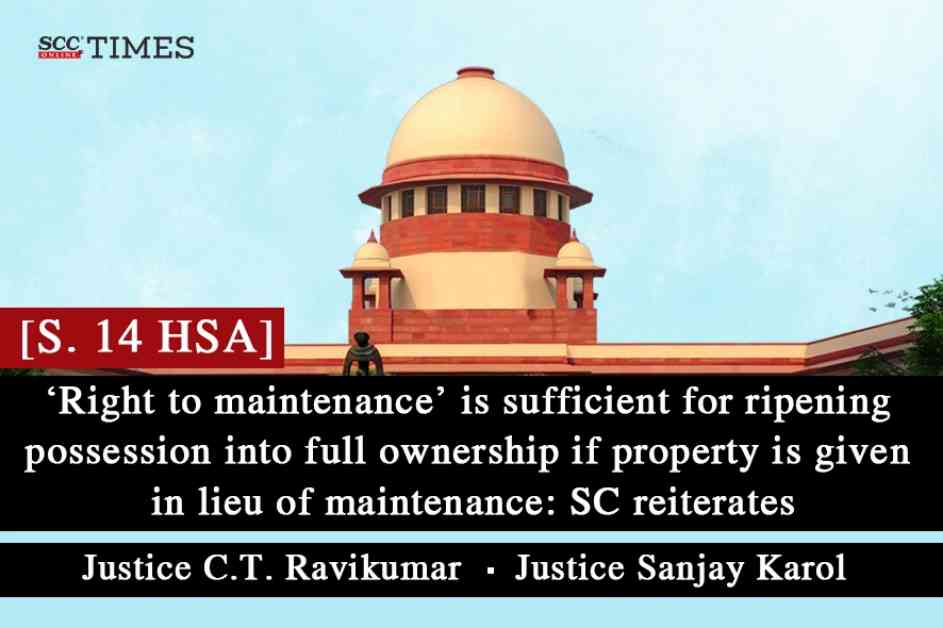The recent Supreme Court decision in a property dispute case involving Hindu succession laws has clarified the concept of ‘right to maintenance’ in ripening possession into full ownership. The case involved a partition deed from 1933 that specified the rights of the parties involved, particularly the appellant’s mother, who was given a life interest in a certain portion of the property.
The dispute arose when the appellant’s mother passed away, and the respondents demanded a partition of the property. The appellant claimed that their mother had absolute rights over the property and could bequeath it through a will. However, the court found that the mother only had absolute rights over a portion of the property, as specified in the partition deed.
The court relied on previous judgments to establish that the right to maintenance can be sufficient for the property given in lieu of maintenance to transform into absolute ownership. It was emphasized that maintenance should be proper, appropriate, and adequate, allowing the woman to maintain a similar standard of living as before.
In this case, the court found that the maintenance provided to the appellant’s mother was sufficient, and there was no reason to interfere with the lower court’s decision. The court reaffirmed that property given in lieu of maintenance can solidify into absolute ownership under Section 14(1) of the Hindu Succession Act, 1956.
This ruling highlights the importance of understanding the rights of women under Hindu succession laws and ensuring that maintenance is provided adequately. It also emphasizes the significance of partition deeds and how they can determine the ownership of property in succession disputes.
